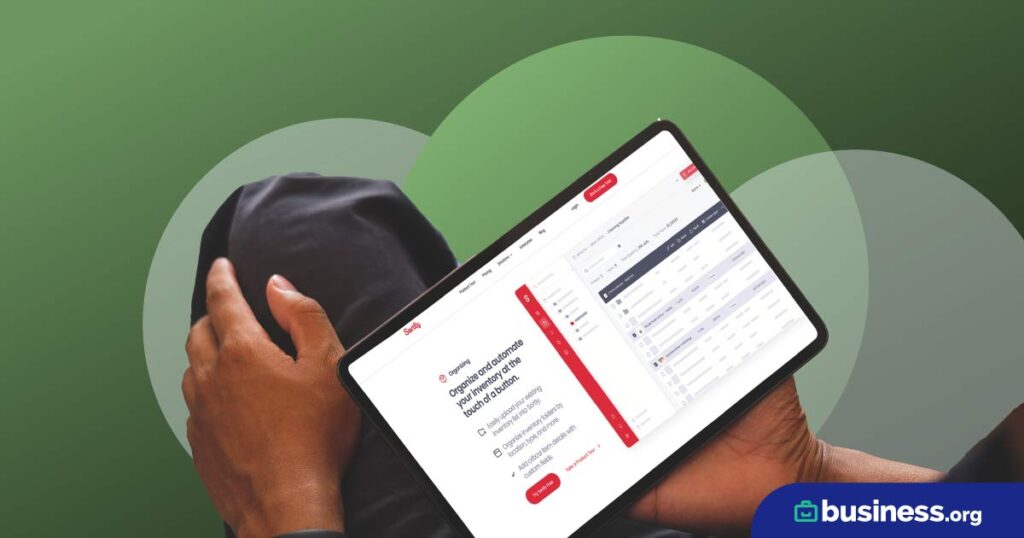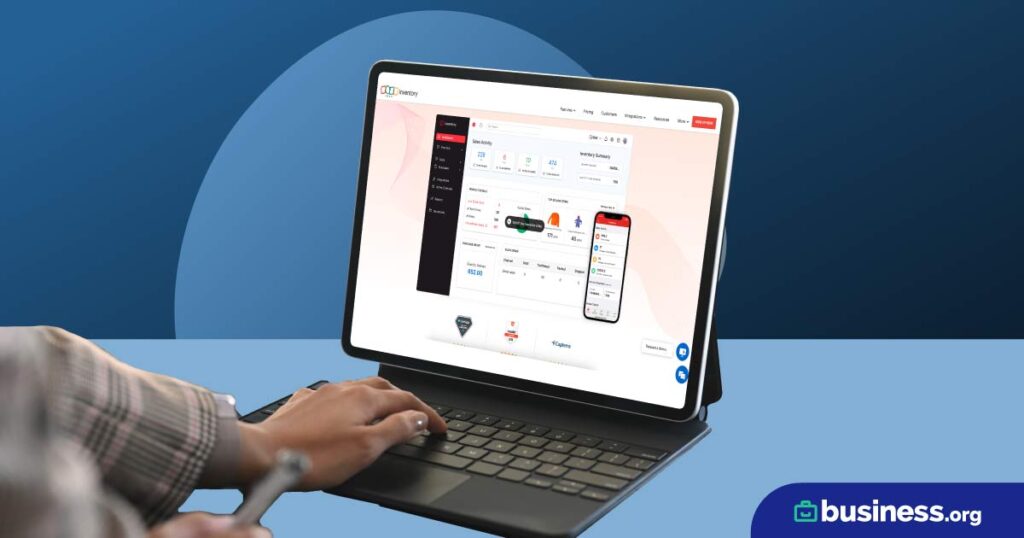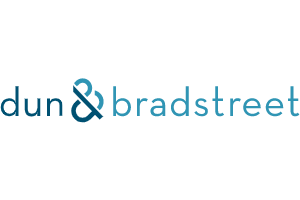We are committed to sharing unbiased reviews. Some of the links on our site are from our partners who compensate us. Read our editorial guidelines and advertising disclosure.
How to Build Business Credit: 5 Steps for Improving Your Business Credit Score
While you’ve probably kept a close watch on your personal credit score, or FICO score, for many years, you may have only recently found out about business credit. Honestly, that’s pretty normal―many small-business owners don’t know or worry about their business credit until they start applying for financing.
But when potential lenders evaluate you and your business, they may consider your business credit. So if you want to get the best possible financing for your small business, you should start building business credit now.
Here’s how you do it.
How to build business credit table of contents
What is business credit?
"Business credit" means the amount of capital your business may be able to borrow.
Business credit is not that different from personal credit. Business credit bureaus track your business’ credit usage, and then they create a score based on that usage. A higher business credit score means you’re more likely to pay back your debts.
Of course, unlike your personal credit profile, your business credit profile focuses exclusively on your business’ credit usage. Your business credit report contains information about the following:
- Existing credit relationships with lenders and vendors
- Past credit relationships with lenders and vendors
- Payment history (on business loans, lines of credit, and credit cards)
- Legal filings and judgments like bankruptcies
Again, all that gets baked into a simple business credit score. So lenders can look at your detailed business credit report, or they can simply look at your business credit score.
By signing up I agree to the Terms of Use.
Business credit reports and scores
You should know, though, that lenders may not be the only people looking at your business credit history. Insurance companies, landlords, suppliers, and even customers may look at and use your business credit report to make decisions about your business.
And just like with personal credit, they may get their information from different sources because there are three primary credit bureaus that track and report on business credit:
You may recognize those last two names from your personal credit reports, as both Experian and Equifax track personal credit too. But let’s be very clear: your business credit and your personal credit are two entirely different things.
Because there are three separate credit agencies, it’s often more helpful to talk about your credit profile ― which may include several different scores ― than one simple credit score.
Business credit vs personal credit
There are some big differences between your business credit and personal credit.
First and most obviously: the subject matter. Your business credit deals with your business credit history, while your personal credit handles your personal credit history. There can be some overlap ― business lenders often check personal credit and may report to personal credit bureaus ― but you get the idea.
Second, you can check your personal credit for free once a year. Unfortunately, you have to pay to access your business credit report. Bummer, we know. It usually costs about $50.
Third, anyone can check your business credit at any time without your consent. To check your personal credit, lenders generally need your permission.
And finally, your business credit and personal credit use very different number scales. A good FICO personal credit score falls between 660 and 719, but both a Paydex score and an Intelliscore only go up to 100. In other words, don’t panic if you have a 99 business credit score.
Keep in mind that your personal credit score matters to many business lenders (so try to keep it nice and high), but we’ll be talking business credit from here on out.
So how do you get a high business credit score?
How to build business credit
You only need to take a few (relatively) simple steps to build your business credit. Just remember that, as with personal credit, good business credit won’t happen overnight. You’ll need to consistently use and repay credit to create a robust business credit profile.
1. Set your business up
Before you worry about anything else, you need to make sure you’ve got your business properly set up and legally operating.
That means your business needs a name and address. It needs to be set up as an appropriate legal entity (whether that’s a sole proprietorship, LLC, S corp, or something else). You’ll also need to get a free EIN (employer identification number) from the IRS.
You can do all this yourself, or you can use a service to help.
You’ll also want to make sure you have a business bank account that’s separate from your personal bank account.
2. Start your business credit file
Once you’re all legally registered, you need to make sure your business has credit files with relevant business credit bureaus.
Now, Experian and Equifax usually automatically start a file on your business once it’s been set up. You can always double-check on their websites, though, and both Experian and Equifax make it easy to search for your business’s credit file. You don’t need to pay for the report at this point ― just make sure it exists.
Unlike Experian and Equifax, Dun & Bradstreet only sometimes starts a file on your business ― in most cases you’ll need to manually apply for a D-U-N-S number (the number Dun & Bradstreet uses to identify your business). You can request a D-U-N-S number online for free, but it can take up to 30 days to get your number.
You don’t necessarily need to worry about all three credit bureaus, but you might want to. Different lenders report to and pull reports from different reporting agencies, so it’s a good idea to make sure your credit looks good at each bureau.
3. Start using business credit
Now that bureaus are keeping tabs on your business, it’s time to start getting and using business credit.
This can take several forms, depending on your needs. For example, most businesses can use at least one business credit card. Depending on your needs, you might choose to have more than one.
If you work closely with specific vendors, you might find that trade credit (also known as supplier financing or mercantile credit) works well for you. Trade credit gives you time to pay for purchases, and it often has low or even no interest.
And of course, classic business loans and business lines of credit provide another great way to use credit. Just keep in mind that we’re talking about actual business loans and lines of credit here. Other types of business financing, including merchant cash advances and invoice financing, won’t build your business credit (because they’re not technically credit products).
4. Keep up with your payments
After you’ve got business credit (whether it’s trade credit, loans, or credit cards), you need to make sure you pay it back on time. This might not be the fastest step of the credit-building process, but it’s probably the most important.
Remember, your business credit score tells lenders whether or not you reliably pay back credit. This is your chance to prove that you do. To effectively build your business credit, you need to make reliable, timely payments.
And keep in mind that building credit takes time. You need to consistently make payments over a long period of time.
We’re sure that was already your plan (because you’re a responsible borrower), but we really can’t emphasize this enough. If you fail to make payments or you default on your loans, you can expect big dings to your business credit score.
So do what you can to make your repayment foolproof. Schedule automatic payments if you can. Set reminders for yourself if you need to. Just keep those payments current.
5. Keep an eye on your credit report
As you do the above steps, you should naturally start to build strong business credit ― no weird tricks necessary. But it’s a good idea to periodically check your business credit reports to make sure everything is accurate.
Yes, looking at your business credit report costs money. But since your business credit score can affect your ability to get financing and the cost of doing so, it’s a worthwhile investment.
When you look at your credit file, you want to make sure that everything is getting reported properly. Are your vendors and creditors reporting your timely payments as promised? Are there any errors that are dragging your score down?
You don’t need to obsessively check your business credit. Even an annual look will give you a lot of insight.
And with any luck, when you do check your business score, you’ll see that you’ve successfully built your business credit.
Enter your loan needs and qualifications to get matched with a list of lenders best suited to you. Then, sort by the financing factor that you find most important. (Note: Not all lenders allow personal loans for business use.)
The takeaway
If you’ve got a business, you should take the time to establish business credit. Your business’ credit history and credit score can affect everything from your business’ ability to get a business loan to the cost of its insurance premiums.
So even if you don’t need perfect business credit right away, start working on your credit building process today. You can also find vendors to help you build your business credit.
Your business credit profile matters, but it’s not the only factor when it comes to financing. Make sure you can qualify by learning about other important business loan requirements.
Related reading
How to build business credit FAQs
There’s no way to build spectacular business credit in, say, just 10 days, but you can get a start on your business credit by following the steps above.
In 10 days, however, you can open a business bank account, file for a D-U-N-S number, open a business credit card, apply for a business line of credit, and more. You’ll need to keep using credit responsibly to build a strong business credit profile.
Yes, an LLC, or limited liability company, has its own credit score and credit report. When you start applying for business credit cards when you start a business, your personal credit score will be weighed in.
There's no fast way to build your business credit other than to follow the steps first in this article. So, make sure you register your business, get an EIN, and then you can apply for a business credit cards. It's really important to keep your personal and business funds separate for tax purposes and future business reporting.
Lenders usually require at least one year in business but it takes around three years to build your credit. Just keep track of all your transactions — and make sure they're on a business account — before you start applying to lenders.
It usually takes three years to build satisfactory credit, and at least one year in business to get approved from a lender.
No, your personal credit score doesn’t directly influence your business credit score. None of the three business credit reporting agencies (Dun & Bradstreet, Experian, and Equifax) use your personal score to calculate your business credit score.
That being said, your personal credit may still affect your chances of getting business financing. Many, many lenders check your personal credit score as part of the loan approval process. So even though your personal credit won’t change your business credit, you should keep an eye on both scores.
To build up your business credit, you’ll need to get business financing. But we’ll be blunt, many lenders use your personal credit score to decide whether or not to lend to you, so it can be hard to build business credit without using your personal credit score.
Your best bet will probably be using trade credit. Depending on your supplier, you may be able to get trade credit without a personal credit check.
Disclaimer
At Business.org, our research is meant to offer general product and service recommendations. We don't guarantee that our suggestions will work best for each individual or business, so consider your unique needs when choosing products and services.






